How to grow hostas and transform your shady garden into a lush green oasis
These shade-loving plants are always the stars of the RHS Chelsea Flower Show – but how do you grow hostas in your own garden?

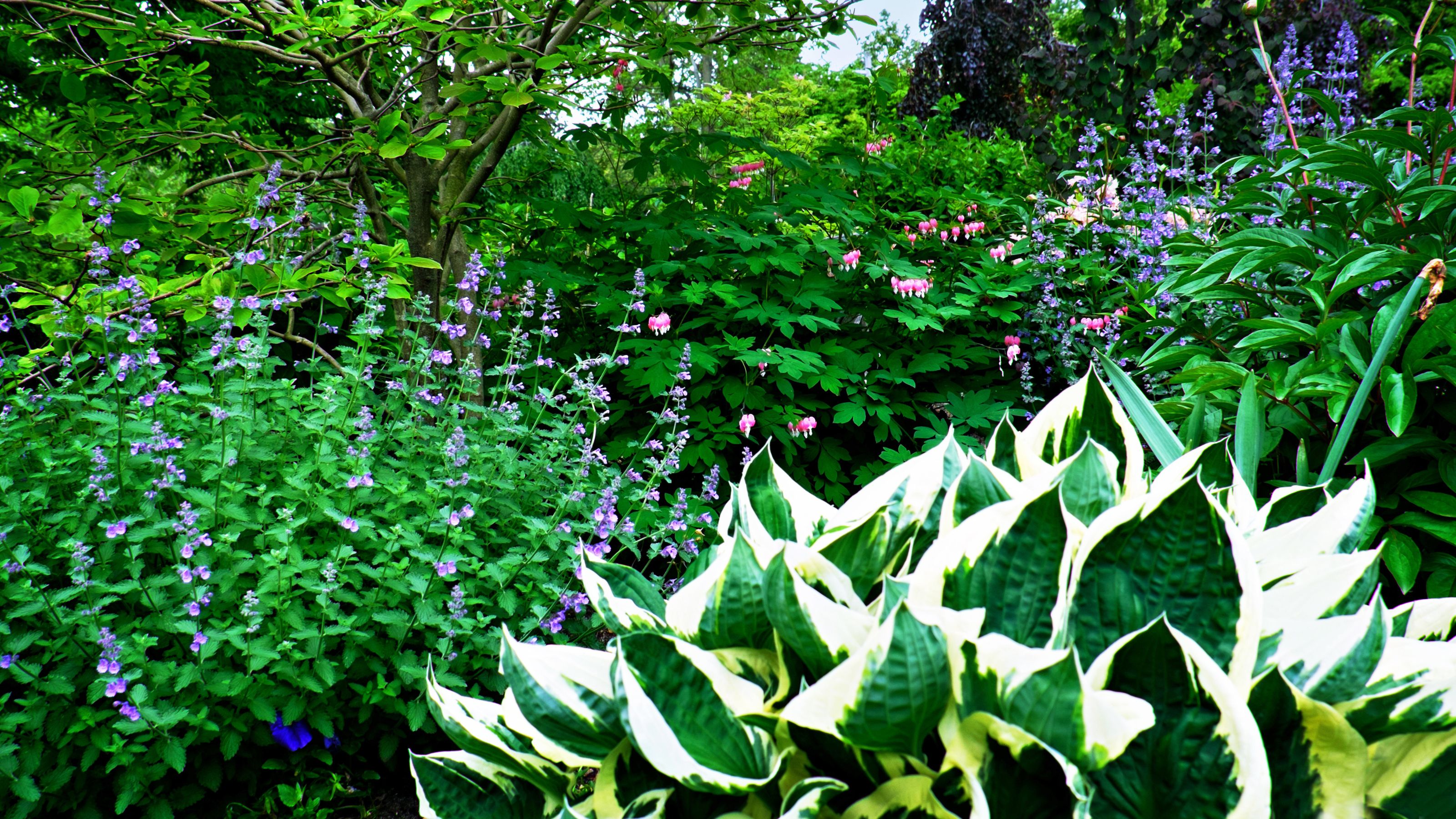
If the gorgeous show gardens at the RHS Chelsea Flower Show have left you wondering how to grow hostas, you aren't alone: these show-stopping plants are prized for their fantastic foliage, not to mention their ability to tolerate shady conditions and waterlogged soil, making them an ideal choice for even a north-facing garden.
Oh sure, you might have to spend some time getting rid of slugs if you plant them in your garden borders (honestly, slugs and snails love them!), but these leafy lovelies are more than worth it – especially if you choose a variety that flowers in the summer!
'Hostas are one of my absolute favourite plants,' says Christopher O'Donoghue, one of the co-directors at Gardens Revived, 'even if you do have to put in a bit of extra work to stop garden pests munching holes through those amazing leaves.'

A gardener with over a decade of experience under his belt, Christopher set up Gardens Revived with his brother, Andrew, in 2018 to create a thriving family business. Together, they have worked on residential gardens, listed buildings and gardens, flower shows and large estates with some exceeding 70 acres – many with historical significance.
With that glowing endorsement ringing in our ears, then...
How to grow hostas
Before we dive into our How To Grow Hostas 101, it's vital you know that timing is everything when it comes to making sure your new plant babies thrive.
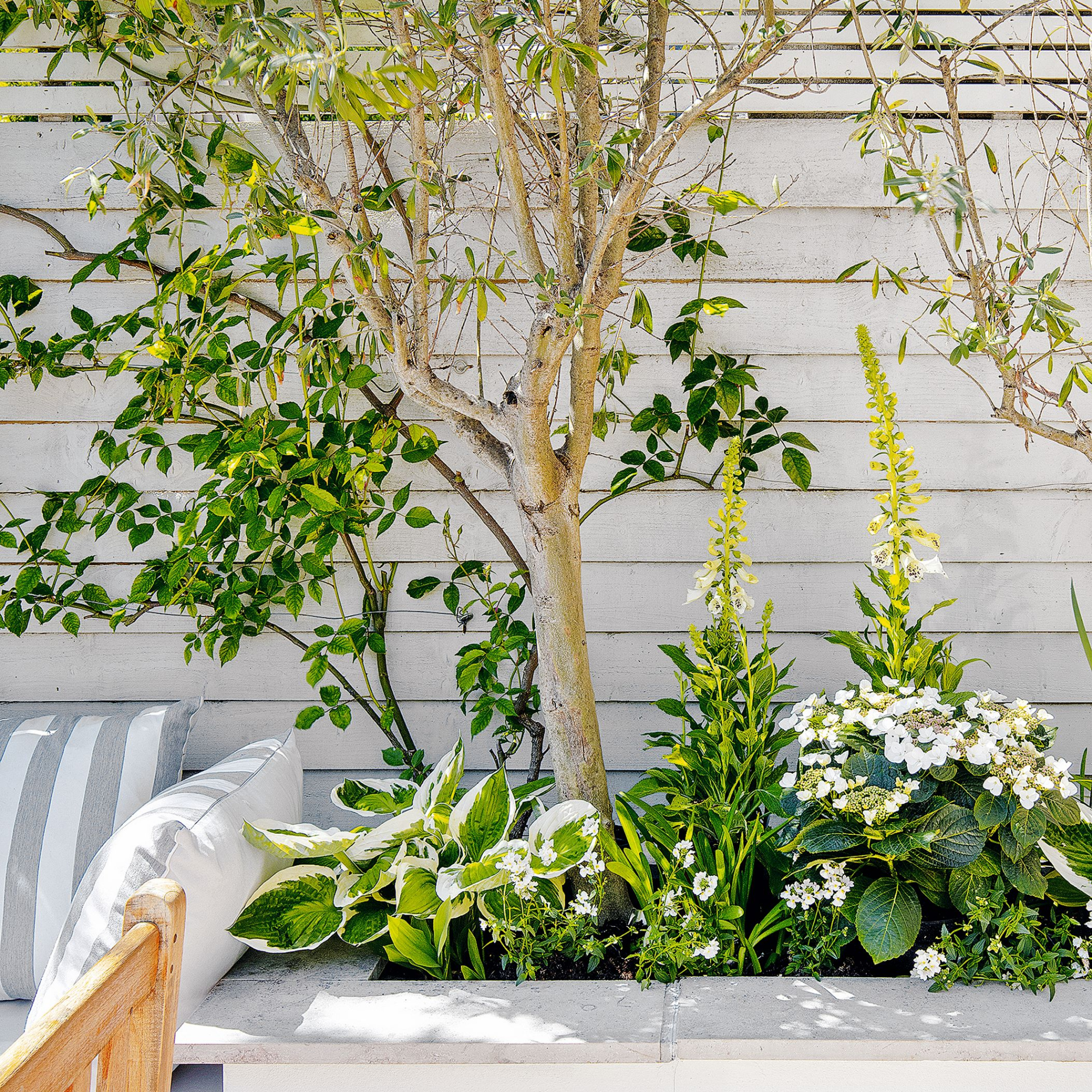
'While you can plant them at any time of year, it's generally best to plant hostas in spring or autumn when the weather is cooler and the soil isn't quite so dry,' says Morris Hankinson, director of Hopes Grove Nurseries.

Morris Hankinson is the founder and managing director of Hopes Grove Nurseries Ltd, the UK’s only specialist grower-retailer of hedging plants. He established the thriving business in 1992, shortly after graduating with a Commercial Horticulture Degree from Writtle College, Essex.
To that same effect, it's best to 'choose a shady to partially-shady spot depending on your variety of hosta,' he adds, noting that darker-coloured varieties tend to need more shade, while lighter-coloured varieties prefer more sunlight.
Sign up to our newsletter for style inspiration, real homes, project and garden advice and shopping know-how
It's also best to plant them in soil with a pH of 6.5, so be sure to test your soil's pH before you get cracking, too.
What you will need
Other than your hostas themselves (more on that in a moment), it's important to make sure you have the following tools to hand:
- A small garden spade, like the NiwakiSmall 'Sukoppu' Garden Spade from John Lewis
- Well-rotted organic matter, such as peat-free garden compost or manure, to help improve the soil
- A general purpose fertiliser, such as Growmore from Amazon
- A selection of Copper Slug and Snail Rings from Amazon (if snails and slugs prove to be a problem)
On top of the above, you'll want to buy your hostas in pots ready for planting.
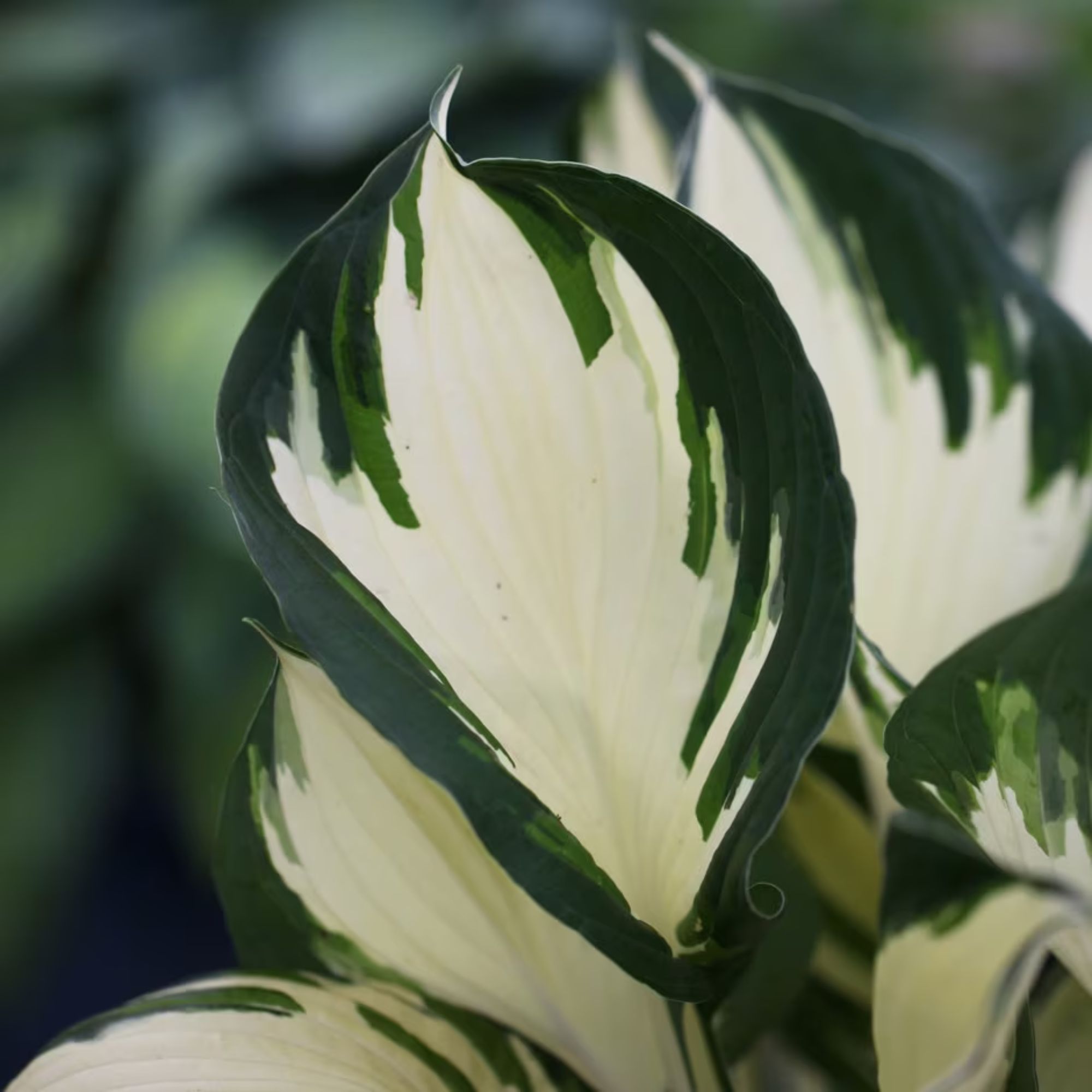
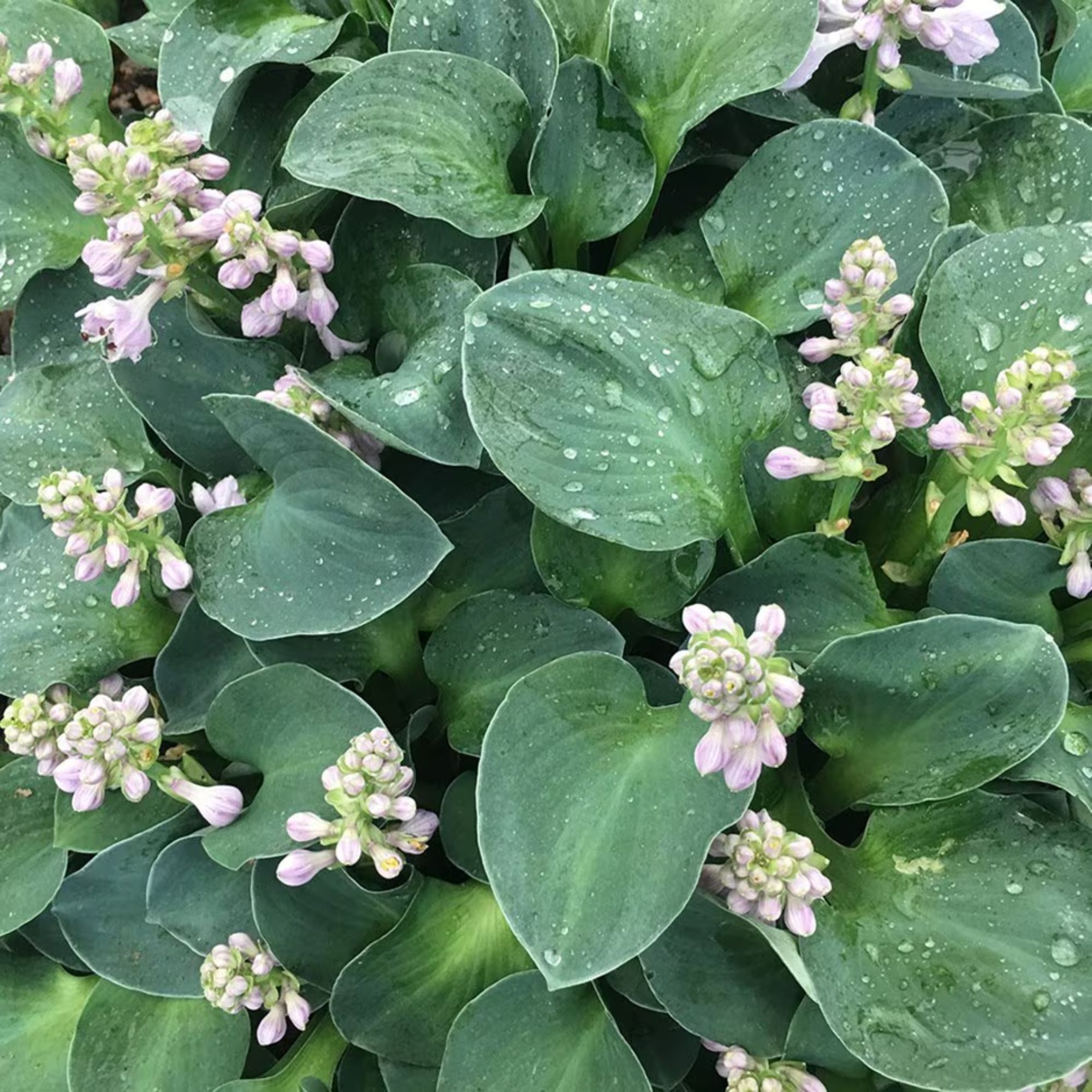
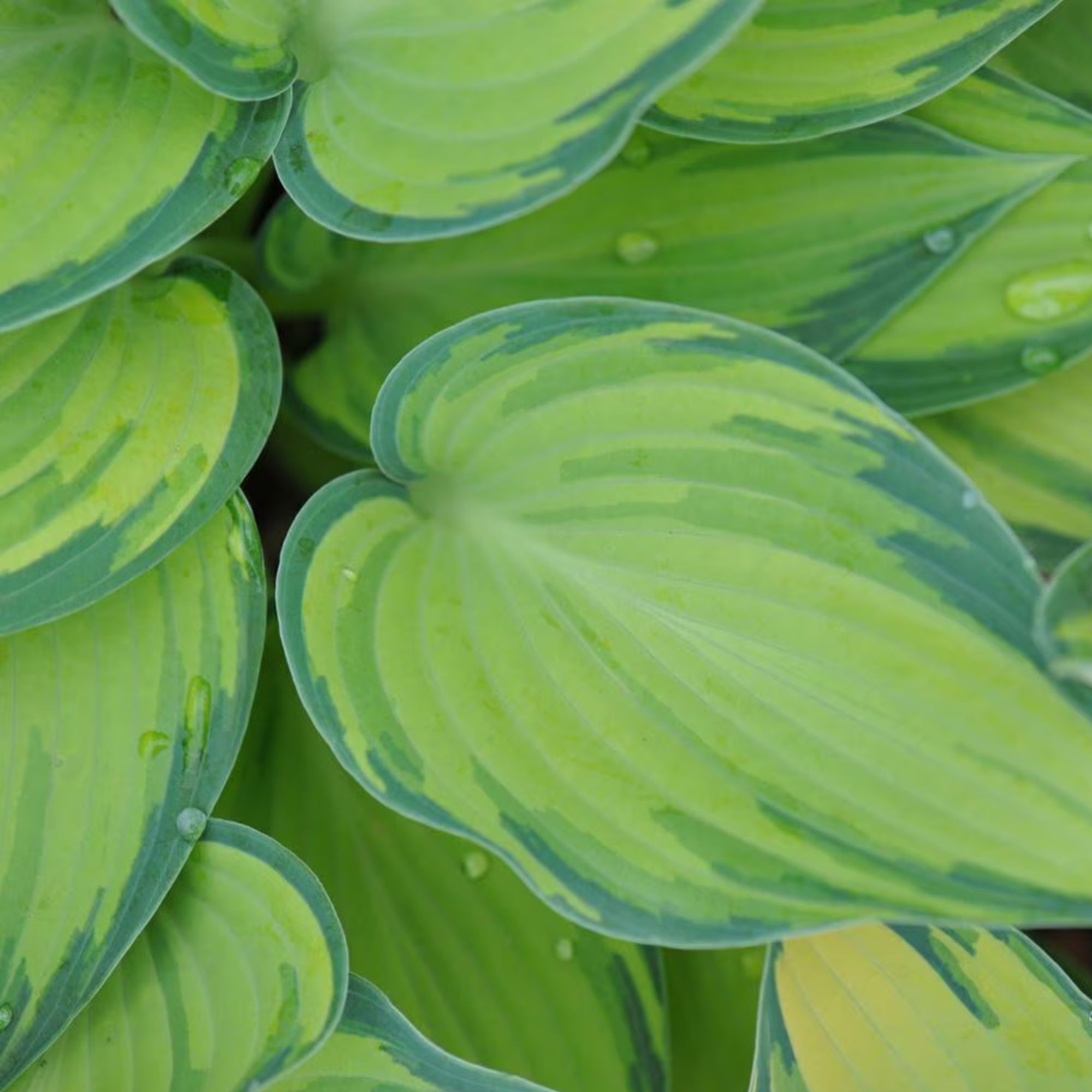
The plant boffins at the Royal Horticultural Society (RHS) advise that, while most hostas 'thrive in moist soil in light to medium shade', there are some exceptions to the rule; for example, 'blue-leaved hostas flourish in light shade, while yellow-leaved ones prefer some sun'.
Be sure, then, to read the growing conditions on your chosen plant's label before you rush off to the checkout!
Step-by-step guide
Once you've gathered all of your equipment and tools together, it's time to get planting your hostas in earnest. And, thankfully, it's a pretty easy task...
1. Prep the soil
As mentioned already, when it comes to learning how to grow hostas, it's all about the soil.
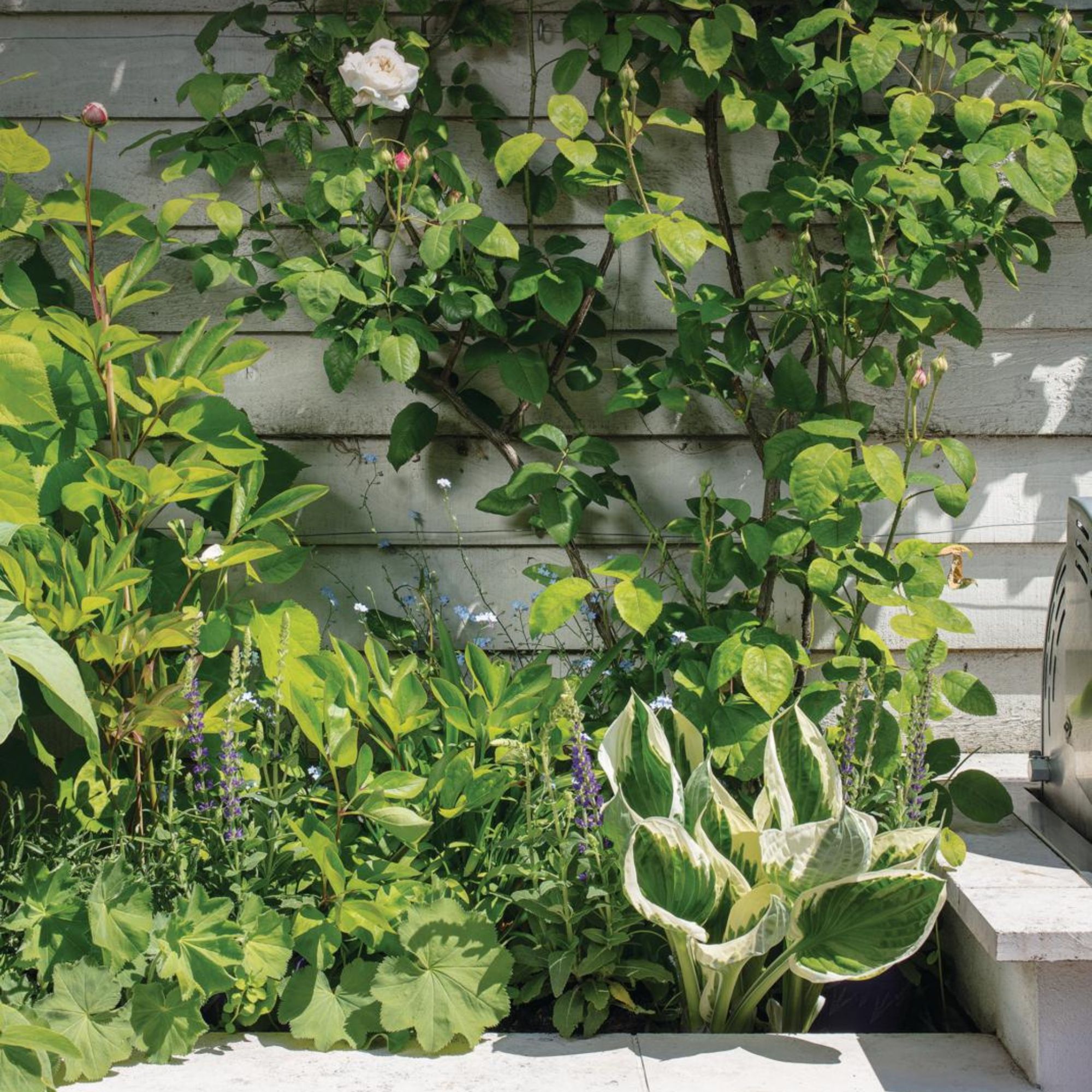
'Hostas prefer moist, well-drained soil rich in organic matter,' says Christopher, 'so be sure to improve the soil with compost or well-rotted manure before planting.'
2. Plant your hostas
Now that you've prepped the area, it's important to dig a hole slightly larger than the root ball using your small space, and place the hosta in the hole.
Then, all you need to do is backfill with soil and water thoroughly.
3. Show them some TLC
While hostas are relatively low-maintenance plants, they benefit from regular care to keep them looking their best.
'Remove any dead or yellowing leaves and ensure you protect your hostas from slugs and snails as they like to feed on the foliage,' says Morris, reminding green-fingered types to place copper rings around their plants if they want to ward off hungry molluscs.
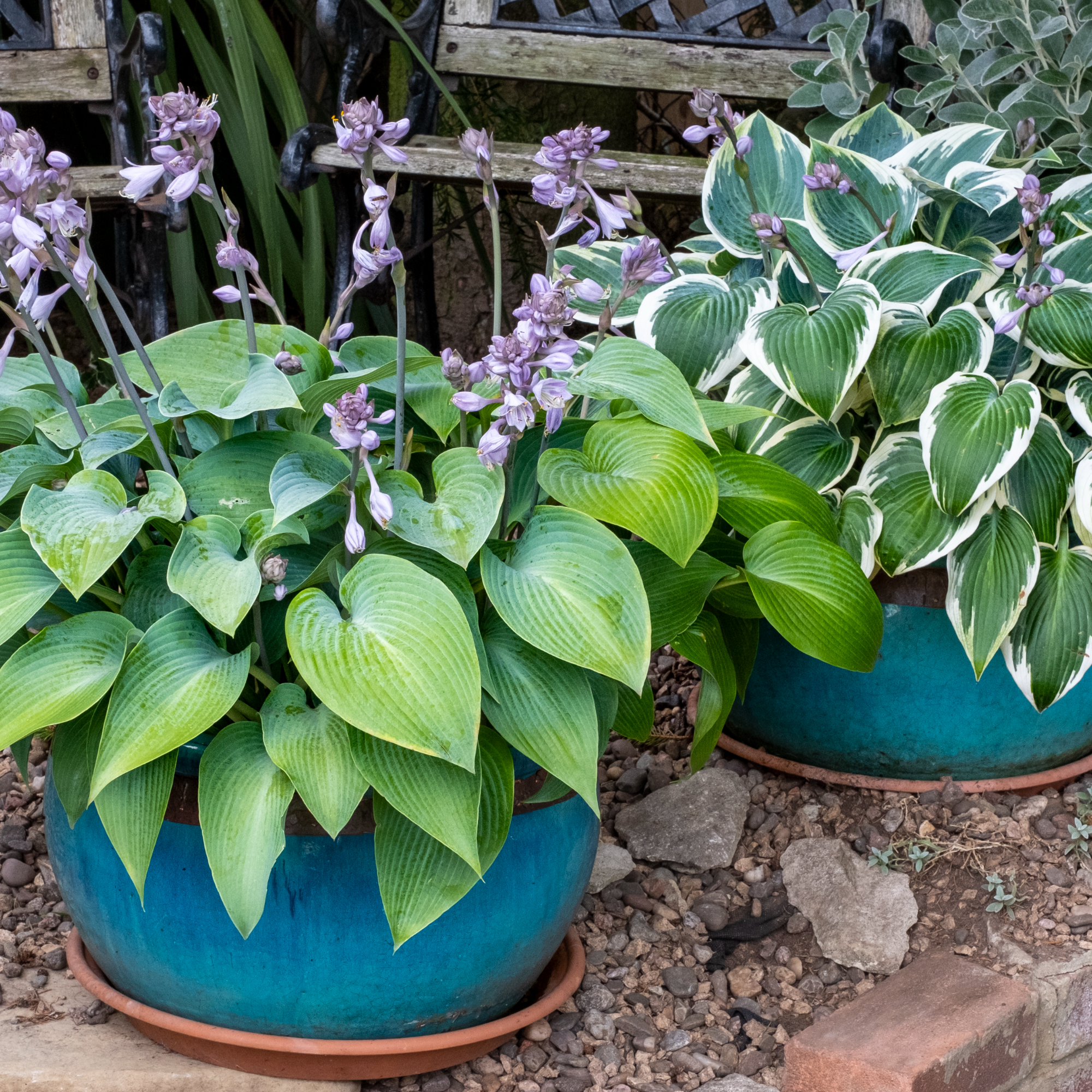
Christopher, meanwhile, says the biggest watering mistake you can make with your hostas is failing to give them enough to drink.
'You want to keep the soil consistently moist, especially during dry periods. Mulching around the base of the plant can help retain moisture,' he says, adding that you should feed your hostas with a balanced fertiliser in spring and early summer to promote healthy growth.
'Avoid over-fertilising, though, as this can lead to lush foliage that is more susceptible to slug damage,' he warns.
4. Divide and conquer
'Hostas tend to clump and spread over time, so dividing them every few years helps rejuvenate overcrowded plants and create new ones,' says Morris.
'This only needs to be done every 3-5 years though.'
FAQs
Do hostas grow better in pots or the ground?
If hostas are on your list of container garden ideas, you'll be pleased to know that many varieties can be planted in pots just as easily as they can in the ground itself.
'You'll need a large 45cm container with plenty of drainage holes,' says Christopher O'Donoghue of Gardens Revived, 'and be sure to use a peat-free compost, such as John Innes No. 3 from Amazon.'
He adds that container plants often dry out more quickly than those planted in the soil, so be sure to water your potted hostas regularly and keep their soil moist (but not too boggy).
Where do hostas grow best?
Hostas prefer partial to full shade, although some varieties (especially those with yellow leaves) can and will tolerate more sunlight.
Depending on your individual plant's needs, be sure, then, to find a spot in your garden that receives shade for most of the day, especially during the hottest hours.
Do hostas come back every year?
Hostas are long-lived perennials, which means they can reliably come back every year – so long as you take steps to overwinter them properly.
'Hostas are generally hardy in the UK, but they benefit from a layer of mulch in late autumn to protect the roots from frost,' says Gardens Revived co-director Christopher O'Donoghue, who adds that you can even add a layer or two of horticultural fleece if you're really worried about heavy frosts.
All in all, then, it's incredibly easy to learn how to grow hostas. In fact, we'd even be so bold as to suggest that the hardest step is choosing which of the gorgeous hosta varieties is right for your shady garden... happy planting!

Kayleigh Dray became Ideal Home’s Acting Content Editor in the spring of 2023, and is very excited to get to work. She joins the team after a decade-long career working as a journalist and editor across a number of leading lifestyle brands, both in-house and as a freelancer.